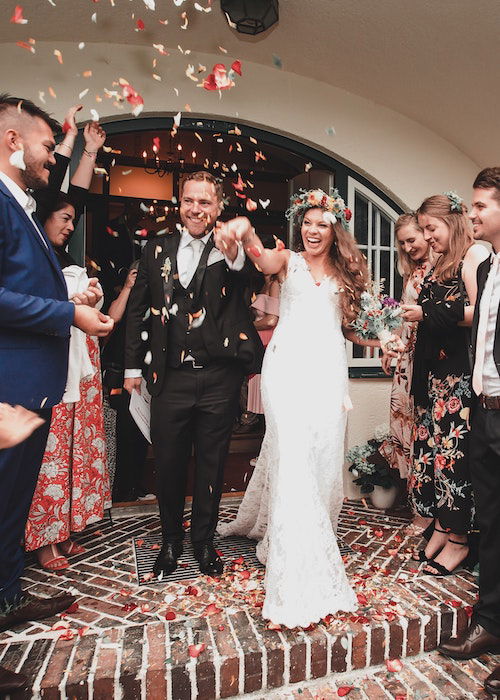As the owner of your photography business, you can oversee everything. But you don’t have to do everything. You should focus your efforts on what you’re best at. Presumably, that means shooting. Here are 12 valuable secrets to outsourcing your photo editing.
12. Weigh Your Time Commitments to Decide Whether Outsourcing Photo Editing Is Worth It
You may actually enjoy retouching. But image editing can be very time-consuming, depending on the genre you shoot. If you’re a wedding photographer, you may have thousands of images from one wedding to get through. Culling that many images can take hours or even days. You might spend several hours in post-processing for every hour you spend shooting. No matter what genre you work in. Weigh your various commitments in terms of how much time they will involve. Think about how better your business would be better served if you freed up some of those editing hours. Sitting down to edit the last portrait shoot you might mean not being able to take on an extra client this week. Then it may be more valuable for you to outsource. If outsourcing image editing means you can bring in more than you spend, you should definitely do it.
11. Hire an Expert to Ensure the Best Results
Professional retouchers are experts in their craft. Not only are they able to do just as good of a job as you can when retouching your photos, they can likely do it better. Retouchers usually have experience shooting. They understand lighting, composition and other important aspects of photography. Retouching is one of their main strengths. They end up working in this field because they enjoy it and it plays to their strengths. This means that when you hire a professional retoucher, you’re hiring an expert. A pro spends their whole day focusing on image editing and has the experience to take your images to the next level.
10. Incorporate Retouching Into Your Pricing Model to Minimise Costs
The expense of hiring a professional retoucher is no excuse to not hire one. Research a few professional retouchers to find out what the price points are. Incorporate the highest price into your packages if you’re a consumer photographer. If you’re a commercial photographer, you most likely will need specific quotes depending on the scope of the project. This can widely vary. In that case, you can put the cost of retouching as a line item in the production estimate you give the client. You’ll need to charge for any editing you do, as well as for the retouching service.
9. Communicate Your Style to Avoid Disappointment
You may argue that you have your own style and particular approach to color treatment when editing your photos. But a photo editing service can replicate the look you want. The important thing is to be clear in your communication. Provide examples that illustrate the style the photo editor should emulate. That can mean the teal and orange look that is popular in landscape photography and portraiture right now. Or it can mean tonal adjustments that are more nuanced. Professional photo editing services usually accept presets. You can create presets for some of your favorite looks. And then give them to your photo retoucher to serve as a baseline. Whatever look you’re going for, be prepared to verbalize it and outline expectations. A good retoucher should be able to meet them.
8. Outsource Clipping Path and Compositing to Save Time
There are certain types of photo editing that you might always want to outsource. Clipping Path comes to mind. This refers to the extraction of image elements in Photoshop. An example of this would be cutting out a product from a background to be placed on packaging. Clipping Path requires advanced skills in Photoshop. This is due to the need for very clean selections. This can be very difficult unless you have a lot of experience. The same selection that might take a professional retoucher minutes in Photoshop might take you hours, with lackluster results. Save yourself the headache and immediately outsource these tasks. The same goes for compositing. Sometimes we need to take several images and create one image for a client. I once worked on a shoot where the client wanted an overhead shot of several dishes on a table. Because this was a last-minute request, I didn’t have the gear on hand. I couldn’t rig the camera properly above the large table. We ended up taking shots of the dishes individually. Then outsourced it to a retoucher to create one image in Photoshop, with great results. Again, unless you’re an expert with selections, outsource complicated compositing.
7. Outsource Portraiture for Frequency Separation
You might be in the consumer photography world and shoot in genres where the look of the skin is very important. These include portraiture, glamour, or boudoir. Then you might want to hire a retoucher to smooth skin. Frequency separation is a powerful technique in Photoshop that allows for retouching the skin in a way that doesn’t degrade its texture. When it’s done well, it gives an image a professional, high-level look that can’t be beaten. However, it’s not an easy technique to master. Poor attempts at frequency separation can destroy an image. If you photograph people, you want your clients to be thrilled with their images and come back to you again and again. Outsourcing your pictures to a pro experienced with frequency separation can help.
6. Do the Fine-Tuning Yourself for More Control
Another approach is to divide the work between yourself and a professional photo retoucher. This can save you a bit of time and money. You end up doing a bit more work than you would if you outsourced everything, but not pay as much to the photo editor. An example of this is to outsource basic edits to exposure and color correction. You can do any fine-tuning yourself. This way, you’ll need to work on far fewer images. Just the best ones from the shoot, that you intend to give to your client.
5. Use Outsourcing to Offer a Faster Turnaround Time
One of the most valuable things you can do for your photography business is to offer your clients a fast turnaround time. This is true no matter what photo genre you shoot. It’s especially true for wedding clients. Weddings are the most work when it comes to the amount of photo editing a photographer has to do. Yet no clients are more anxious to get their hands on their photos than a bride and groom! Clients are thrilled when they receive their photos quickly after their wedding. Most weddings are shot during certain months of the year. This means photographers are overloaded with photo editing while shooting several weddings in a row. By outsourcing photo editing, they can ensure their clients will receive their images fast. The excitement will still be there for them. Editing companies that specialize in wedding photo retouching like ShootDotEdit deliver as quickly as 48 hours. Being able to offer a fast turnaround time to your clients leads to greater client satisfaction. They will view you as a professional. And they will spread the word about your services, leading to more business.
4. Make Connections in the Photographic Community to Find the Best Retouchers
You can find some of the best retouchers within your photographic community. Facebook groups that focus on a specific niche in photography are very popular. By joining them, you can get feedback on your work. And you can find camaraderie with other like-minded creatives. Don’t hesitate to ask for recommendations or advice. Many part-time photographers make extra income by photo editing. And you can find them in these groups. Most will be eager to show you what they can do by offering you a few free photo edits. Photographers who don’t live in your market and are not in direct competition with you can be valuable connections. You can also find them by joining membership sites or signing up for a group coaching experience. This can mean a masterclass on a certain photography topic, for example.
3. Outsource to Create More Time for More Clients
Outsourcing your post-processing workflow to a photo editing service can free up a lot of time that would be better spent on other endeavors. For example, photography marketing efforts to bring more clients through the door. When running a small business, one of your main focuses should be on creating a steady influx of new clients. Repeat clientele is great, but you can’t count on them to bring you all your business. Even photographers with decades of experience are always looking for new clients. Consistency is the key to successful marketing. A lot of photographers tend to drop the ball when they are busy. And then when things slow down, the clients are not there. If you’re spending a significant amount of time editing and retouching your photos, you’re likely missing out on opportunities to grow your client base and take your photo business to the next level. You can’t do it all. Be willing to let some of the mundane stuff, like photo editing, go so you can focus on the things that matter most.
2. Use Outsourcing to Take the Pressure Off Yourself and Focus on Shooting
Chances are that you got into photography because you love shooting. You also may also love retouching. But for many photographers, editing is not their strength. If this applies to you, you’re better off outsourcing your photo work. This will allow you to focus on what you do best. After all, did you get into photography to spend countless hours behind a computer? Not having the pressure of hundreds of edits for every client that walks in the door is very helpful. You can focus on being creative and taking the time to get the best shots that you can. It will also free up your time to learn more about lighting, composition, and other facets of photography. This will also improve your work.
- Expect High-Quality Results But Let Go of Perfection One of the biggest stumbling blocks photographers face in outsourcing their images is letting go. As a photographer, you may feel emotionally attached to your work. You may feel it reflects on you. It’s important to have standards. But many creatives set expectations for themselves that are too high. In order for outsourcing to work for you, you need to let go of perfectionism. Done is often better than perfect. This doesn’t mean that you should accept sloppy results. It means that you don’t stress over every little thing that most people won’t even notice.
Common Questions About Outsourcing Your Photo Editing
What Do Professionals Use to Edit Photos?
Most professionals outsource their photo editing to companies such as ShootDotEdit, Retouchup, Fix the photo, or Rebooku. These are reputable online sources for photographic retouching. You can also find a great photo editor by word-of-mouth. Ask other photographers for recommendations. Or research several that you think might be a good fit and have them retouch a small batch of images for you.
How Much Does A Photo Editor Cost?
The cost of outsourcing your photo editing depends on how much retouching you want done. And how complicated it will be for the retoucher. A company that specializes in editing wedding photos may only charge $.30 an image. Complicated composing work for advertising photography may cost several hundred.
Why Do We Edit Photos?
Digital files are naturally quite flat. Unless you shoot only in .jpeg. they also need to be processed. No matter how properly exposed your images are in-camera, they still need some enhancement to color, tone, and contrast. This helps them appear their best.
What Is a Photo Retouch?
Technically, editing photos is the process of culling photos to choose the best ones from a larger collection. Retouching photos is the process of manipulating photographs to change the way they look. This can range from color treatment to removing stray hairs or a pimple.
Conclusion
Once you try outsourcing some of your images to a professional retoucher, you might wonder why you didn’t do it earlier. A photo retoucher can take care of all the mundane Photoshop work. Outsourcing photo editing will free up your time to go after clients with deeper pockets. Or they can help you with difficult techniques that would also take a lot of time to learn. To succeed in business, you need to focus on the tasks that make you the most money. Outsourcing photo editing work is one of the best ways that will allow you to do this.












